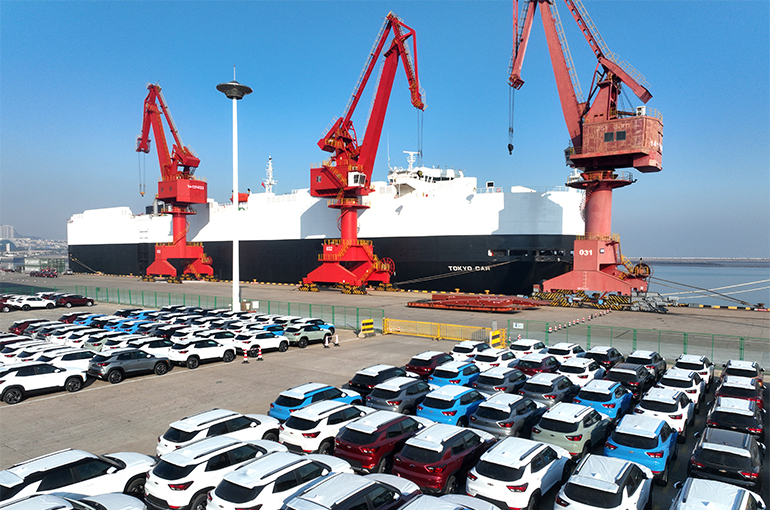 New US Tariffs on Chinese EVs Would Breach WTO Deal, Lawyer Says
New US Tariffs on Chinese EVs Would Breach WTO Deal, Lawyer Says(Yicai) May 14 -- Expected new US import tariffs targeting key Chinese strategic sectors such as electric vehicles would violate World Trade Organization agreements, according to a lawyer.
The levies would likely breach the WTO’s most-favored-nation principle and the commitments the United States made in the global trade body to lower tariffs, Sun Lei, a senior partner at Beijing Dacheng Law Offices, told Yicai.
The Biden Administration plans to impose major new tariffs on EVs, semiconductors, solar equipment, and medical supplies imported from China, the Associated Press reported on May 11, citing a US official and another person familiar with the matter. Levies on EVs, in particular, could quadruple from 25 percent to 100 percent, the report noted.
Chinese EVs have only a small share of the US auto market at present, Sun said, adding that the US’s logic is that that would inevitably increase if the US government did intervene and the cost of intervention would grow with time.
If the expected new tariffs on Chinese EVs are announced, the move would in the short term have a greater impact on Tesla and other carmakers that invest in and build factories in China, Sun pointed out. Tesla would not sell its China-made cars in the US, for example, but its other factories outside of the US would adjust to that, he said.
Chinese EV makers would also come under greater pressure to shift their investments abroad, Sun noted. Auto products have long supply chains, so moving production and assembly lines overseas would affect not only the EV industry itself but others too, including the steel and aluminum, engine technology, and lithium-ion battery sectors, he said.
Speaking to reporters about the expected new tariffs at a regular foreign ministry briefing on May 10, spokesperson Lin Jian said: “We urge the US to follow WTO rules, lift all additional tariffs on China, and not to impose new ones. China will take all necessary measures to defend its rights and interests.
“Section 301 tariffs imposed by the former US administration on China have severely disrupted normal trade and economic exchanges between China and the US,” he said. “The WTO has already ruled those tariffs against WTO rules.
“Instead of ending those wrong practices, the US continues to politicize trade issues, abuse the so-called review process of Section 301 tariffs, and plan tariff hikes,” Lin said.
Editors: Zhang Yushuo, Futura Costaglione